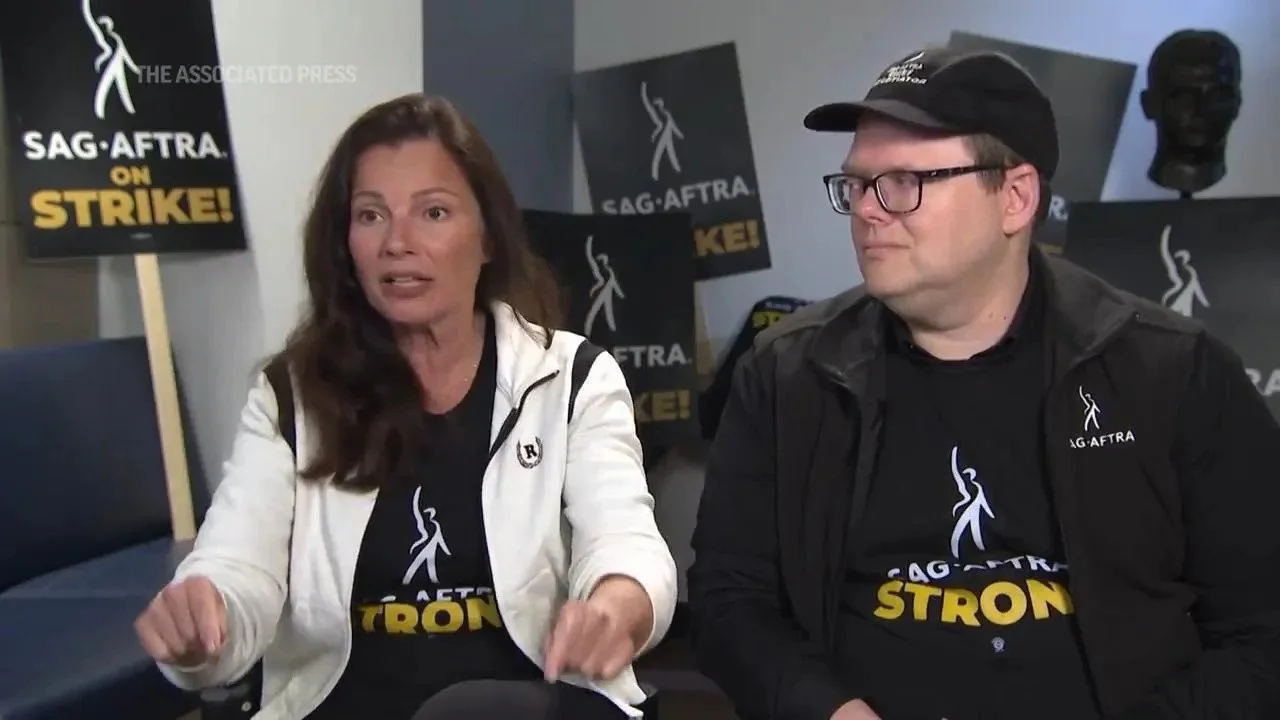A Look Into How Talks Broke Down Between SAG-AFTRA And AMPTP
Image Source: Moneycontrol
As the actor’s guild SAG-AFTRA strikes against the AMPTP, many are wondering about the reasons behind the strike and what it means for release schedules for films and TV programs. On June 7 the actor’s guild began their negotiations with AMPTP. The union’s chief concern was about the decreasing residual payments resulting from the move to streaming. SAG-AFTRA president Fran Drescher insisted on the contracts being completely rewritten. The AMPTP, accustomed to minor changes, immediately disliked this idea.
Early in the talks, the subject quickly expanded to include residuals, protections from AI technology, and a 14% increase in minimums that was quickly reduced to 11%. From the studios’ perspective, SAG-AFTRA offered a chaotic list of demands with no clear prioritization. AMPTP’s president Carol Lombardini denied their initial requests. The union then agreed to a 12-day extension of their deadlines for reaching an agreement. The back and forth between the two organizations couldn’t strike an amicable deal, so SAG-AFTRA went on strike.
RELATED:
Image Source: USA Today
Before the strike began, Lombardini claimed the AMPTP had more offers if SAG-AFTRA paused the strike action. Lombardini also asked the union representatives to be civilized, leading to backlash from union members. SAG-AFTRA executive director Duncan Crabtree-Ireland called this a low blow and defended the unions’ right to strike. Crabtree-Ireland explained, “When you do something as a union like say ‘Even though we’re going to have to go on strike, we’re ready and willing to remain at the bargaining table and see if we can reach a deal’ and all you hear back is ‘You’re acting uncivilized by going on strike,’ that does tend to raise frustrations on both sides.”
Drescher and Crabtree-Ireland attempted to go around Lombardini by contacting four Hollywood executives, but they proved to be as unreceptive to the union’s demands as the AMPTP. Drescher publicly condemned the studios for being “on the wrong side of history.” So far, neither side is willing to budge on their demands. SAG-AFTRA is asking for a bigger percentage of residuals, protections against AI technology and its potential abuses, and a raise in their minimum salary. With writers also on strike, it seems SAG-AFTRA has the upper hand. Naturally, TV shows and movies that have not finished filming, with a few exceptions, will have to push back their release dates until after the strike is over, and writers and actors can return to doing what they love.
READ NEXT:
Source(s): Variety, The Hollywood Reporter













